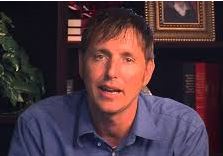 Like every other branch of American Government, the Supreme Court is not without its heroes and zeros. However, the Central Judiciary was a desperately needed piece added to the Constitution in Article Three after a season of no Federal judiciary during the time of the Articles of Confederation, America’s first Constitution.
Like every other branch of American Government, the Supreme Court is not without its heroes and zeros. However, the Central Judiciary was a desperately needed piece added to the Constitution in Article Three after a season of no Federal judiciary during the time of the Articles of Confederation, America’s first Constitution.
Founding Father Alexander Hamilton postulated: “[A] limited Constitution … can be preserved in practice no other way than through the medium of courts of justice, whose duty it must be to declare all acts contrary to the manifest tenor of the Constitution void.”
This past Sunday President Trump said that he was “close to making a decision” about who he would nominate to replace retiring Supreme Court Justice Anthony Kennedy tweeting:
“Looking forward to announcing my final decision on the United States Supreme Court Justice at 9:00pmE tomorrow night at the @WhiteHouse. An exceptional person will be chosen!”
So the question is if the president means an “exceptional person” is a “constitutional person.”
The dilemma is that most Americans assume rulings and decisions handed down in cases that come before American courts are based on, and consistent with, “constitutional law”, that is to say “real law”.
But, regrettably, this is not true.
In American Courtrooms today, court rulings are not based on real law. Rather, they are based on an imitation system, which is commonly called “case law” or “the case law method”.
This phony “case law” method of understanding what law is and where law comes from is taught in virtually every law school in America today.
Let me briefly explain.
Prior to the 1880’s, those who desired to practice law studied under experienced attorneys. Their apprenticeship included both the study of recognized legal scholars such as Blackstone, Montesqieue and Locke, as well as practical experience in writing briefs and memorandums and observing their masters in actual practice before the bar.
Undergirding that system was the universal understanding that law, like truth, is a fixed and certain thing because it is a part of God’s Creation, and that the principles and precepts of law are found in God’s Word and in His Creative Order.
But the “case law” system replaces the wisdom of God’s Creative Order with the foolishness of men’s evolutionary imaginings.
Law students, who, of course, go on to become lawyers and judges and congressmen, are taught that the source of law is the mind of a judge, which is then changed by the opinion of another judge and then, well… you can tune in tomorrow to see what the law might be then…
I pray that the power the President has to appoint is used to select a Justice who can hear the spirit of founding fathers like Hamilton and see it as their duty “to declare all acts contrary to the manifest tenor of the Constitution void.”
 *** Jake MacAulay *** is a Life and Liberty News Contributor and serves as the Chief Operating Officer of the Institute on the Constitution (IOTC), an educational outreach that presents the founders’ “American View” of law and government. The former co-host of the syndicated talk show, The Sons of Liberty, he is an ordained minister and has spoken to audiences nation-wide, and has established the American Club, a constitutional study group in public and private schools.
*** Jake MacAulay *** is a Life and Liberty News Contributor and serves as the Chief Operating Officer of the Institute on the Constitution (IOTC), an educational outreach that presents the founders’ “American View” of law and government. The former co-host of the syndicated talk show, The Sons of Liberty, he is an ordained minister and has spoken to audiences nation-wide, and has established the American Club, a constitutional study group in public and private schools.
Learn more about your Constitution with Jake MacAulay and the Institute on the Constitution and receive your free gift.

